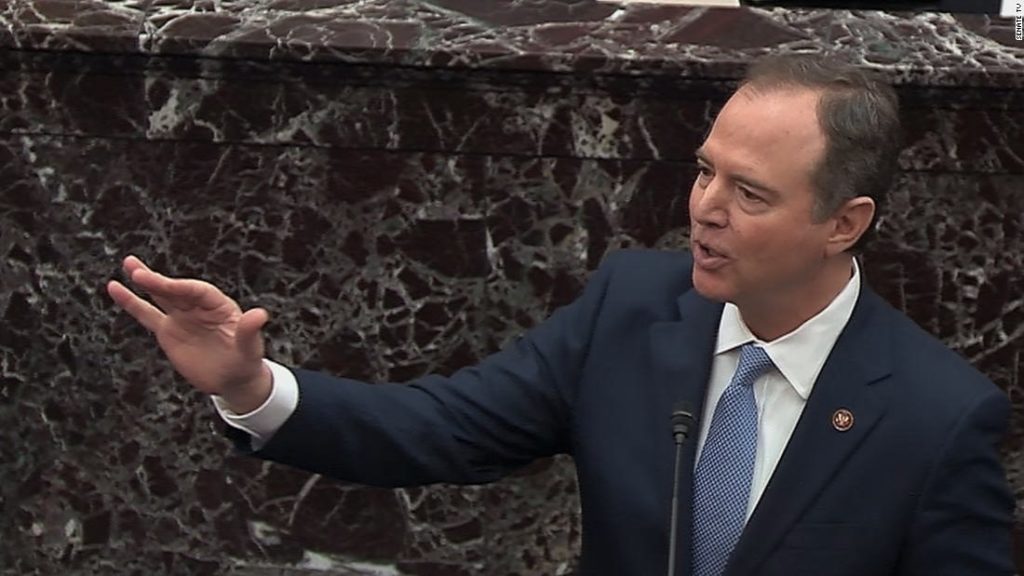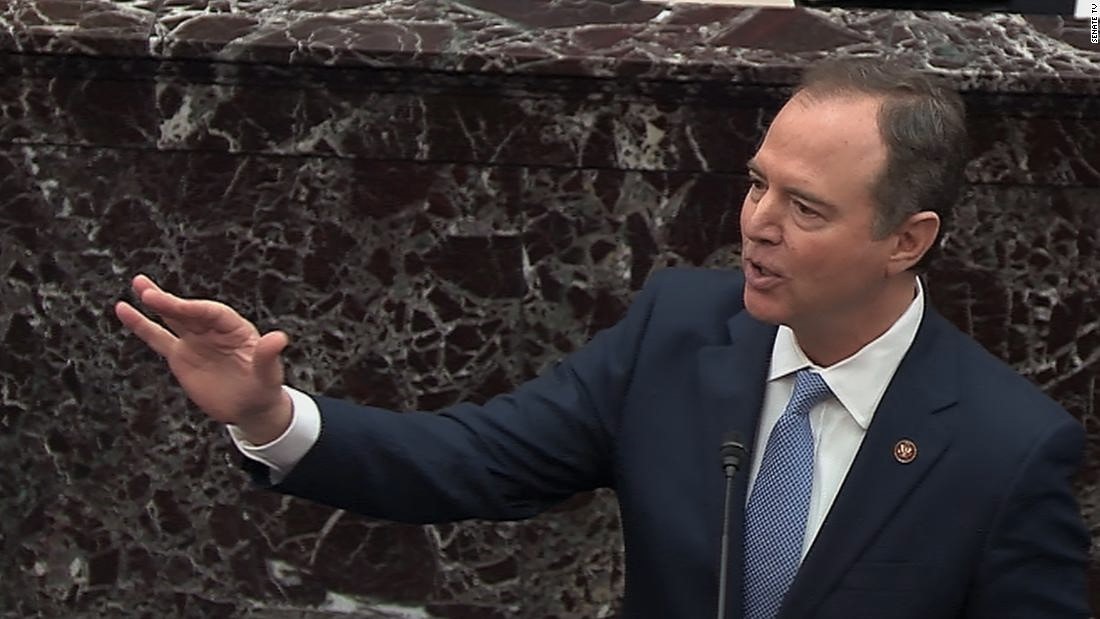“As long as the world shall last there will be wrongs, and if no man objected and no man rebelled, those wrongs would last forever.” – Clarence Darrow

This is a case about truth and lies; right and wrong.
At the conclusion of the White House defense team’s arguments on behalf of President Trump, the revelations by former National Security Advisor John Bolton appear to have swayed several Senate Republicans toward calling witnesses, notably, Bolton himself.
But I want to return to House Manager Adam Schiff. The California representative had a couple of moments that are worth remembering, no matter the outcome in the Senate.
When Schiff stood in the well of the Senate making his case for removing President Donald Trump from office, at the time, it appeared that few Republican senators had moved from their positions.
Listening to Schiff, I have never heard a more cogent and clear summary of the dangers that lie ahead for this Republic if the charges against this president are wiped clean.
Summarizing the case, point by point in the final session, Schiff not only offered an impassioned plea for justice but for moral courage at perhaps the most critical time for the country since Watergate.
Here are the parts of that speech that stood out for me.
“Robert Kennedy once said, ‘Moral courage is a rarer commodity than bravery in battle or great intelligence. Yet it is the one essential vital quality for those who seek to change the world which yields most painfully to change. Moral courage is a rarer commodity than bravery in battle.’ …
“What could be more rare than courage in battle? But then, I got to visit, as I know all of you have, our service members around the world and see just how blessed we are with an abundance of heroes by the millions who have joined the service of this country. …
“Then I saw what Robert Kennedy meant by moral courage. ‘Few,’ he said, ‘are willing to brave the disapproval of their fellows, the censure of their colleagues and the wrath of their society.’
“Then I understood by that measure just how rare moral courage is. How many of us are willing to brave the disapproval of our fellows, the censure of our colleagues and the wrath of our society? …
“One of the things that we, in this fellowship of office holders, understand that most people don’t, is that real political courage doesn’t come from disagreeing with our opponents but from disagreeing with our friends and with our own party, because it means having to stare down accusations of disloyalty and betrayal. …
“What I said last night, if it resonated with anyone in this chamber, didn’t require courage. My views, as heartfelt as they are, reflect the views of my constituents. But what happens when our heartfelt views of right and wrong are in conflict with the popular opinion of our constituents? What happens when our devotion to our oaths, to our values, to our love of country, depart from the momentary passion of a large number of people back home? Those are the times that try our souls. …
“Now soon, members of this body will face the most momentous of decisions. Not as I said at the outset, between guilt and innocence, but a far more foundational issue. Should there be a fair trial? Shall the House be able to present its case with witnesses and documents through the use of subpoenas as has been the case in every impeachment trial in history? …
“The American people do not agree on much, but they will not forgive being deprived of the truth. … In his pamphlet of 1777, The American Crisis, Thomas Payne wrote, ‘Those who expect to reap the blessings of freedom must undergo the fatigue of supporting it.’
“Is it too much fatigue to call witnesses and have a fair trial? Are the blessings of freedom so meager that we will not endure the fatigue of a real trial with witnesses and documents. …
“The founders gave us more than words. They gave us inspiration. They may have receded into mythology, but they inspire us still and more than us, they inspire the rest of the world… From their prison cells in Turkey, journalists look to us. From their internment camps in China, they look to us. From their cells in Egypt, those who gathered in Tahrir Square for a better life, look to us… From Elgin prison, they look to us. From all over the world, they look to us. …
“They look to us because we have a rule of law. They look to us because no one is above that law. One of the things that separates us from those people in Elgin Prison is the right to a trial.… Americans get a fair trial. So I ask you, I implore you, give America a fair trial. Give America a fair trial. She’s worth it.”
Notwithstanding his closing argument on the case, it was Representative Schiff’s closing remarks at Thursday’s session that resonated most with me. It was the most compelling statement about the most fundamental of ethical values, honesty, and the consequences of letting this president off the hook for his blatant disregard of truth.
“Here, right matters. If right doesn’t matter, it doesn’t matter how good the Constitution is. It doesn’t matter how brilliant the Framers were. It doesn’t matter how good or bad our advocacy in this trial is. It doesn’t matter how well-written the oath of impartiality is. If right doesn’t matter, we’re lost. If the truth doesn’t matter, we’re lost. The Framers couldn’t protect us from ourselves if right and truth don’t matter. And you know that what he did was not right.”
This is a case about truth and lies; right and wrong.
When the votes are counted, who will stand up for truth?
Who will stand up for duty; for principle?
When the votes are counted, who will stand up for the Constitution?
Comments










